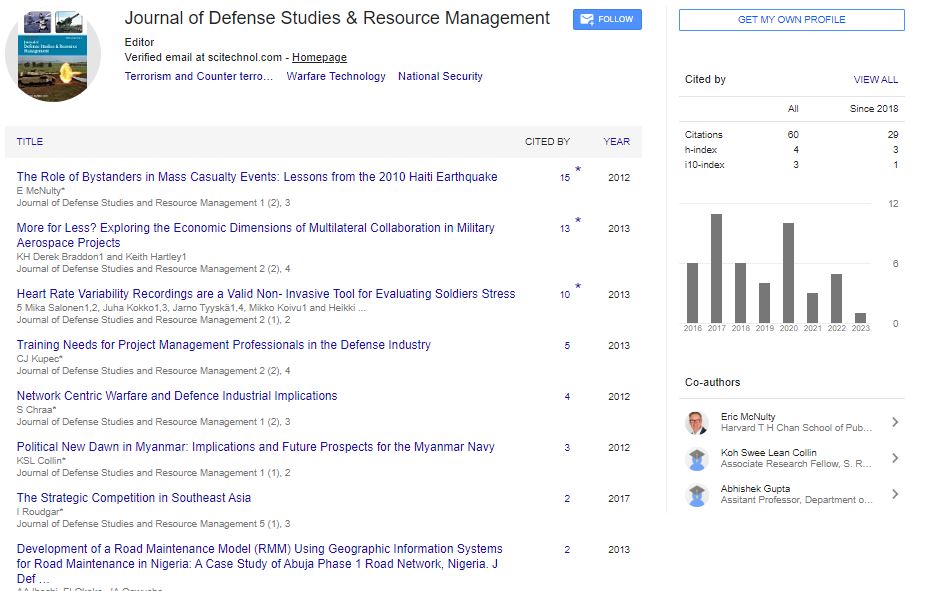Research Article, J Def Stud Resour Manage Vol: 3 Issue: 1
The Collaboration Problem Understanding & Managing the Impediments to Cooperation
| Darryn J Reid* | |
| Joint & Operations Analysis Division, Defence Science and Technology Organisation, Edinburgh, South Australia | |
| Corresponding author : Darryn J Reid Joint & Operations Analysis Division, Defence Science and Technology Organisation, Edinburgh, South Australia E-mail: darryn.reid@dsto.defence.gov.au |
|
| Received: May 09, 2014 Accepted: August 22, 2014 Published: August 26, 2014 | |
| Citation: Reid DJ (2014) The Collaboration Problem Understanding & Managing the Impediments to Cooperation. Def Stud Resour Manage 3:1. doi:10.4172/2324-9315.1000118 |
Abstract
I contend, despite the vastness of management literature, that the nature of collaborative production is not sufficiently well understood to effectively ameliorate its inherent difficulties. By examining collaboration in economic terms, I find that while our instincts that collaboration is good are well founded, we may also significantly over-estimate the range of conditions under which it represents a viable means of production. Starting with the simple question of why we have organisations in the first place, and casting collaboration among a range of alternative production mechanisms, significant boundaries already become apparent: in particular, the appropriateness of collaborative production is highly sensitive to transaction cost structures and to the precise nature of the things we intend to produce. I examine a range of phenomena collectively known as 'network effects', which are essentially the means by which collaboration can deliver its heralded benefits. Far from being unconditionally beneficial, however, collaboration intrinsically has the potential to generate significant inimical effects, including initialisation difficulties, monopolistic behaviour, path dependency and lock-in, and various kinds of externalities. Our collaborative ambitions may also be substantially at the mercy of the implications of hard capital rationing, which is an economic reality for national defence organisations with farreaching consequences, including a tendency to drive subordinate organisations out of synchrony. Against this backdrop, I evaluate three strategies for mitigating these adverse effects: volitional philanthropy, which is arguably the most talked about; direct intervention, which is arguably the most often used; and a novel strategy called 'internalisation' which, I argue, offers the most comprehensive and sound basis for defining production environments that have the best chances of making the most of collaborative opportunities. Internalisation is fundamentally about bringing the inimical phenomena we wish to avoid back under the control of the normal resource allocation mechanisms in operation. Yet this also comes with its own set of challenges: success hinges on clearly defined enforceable property rights that are tailored to the nature of the resources to which they are bound, that these property rights are structured so that they can be successfully bundled by actors to meet their production needs, and that all the actors concerned can access means of fair bargaining at affordable cost.
 Spanish
Spanish  Chinese
Chinese  Russian
Russian  German
German  French
French  Japanese
Japanese  Portuguese
Portuguese  Hindi
Hindi 